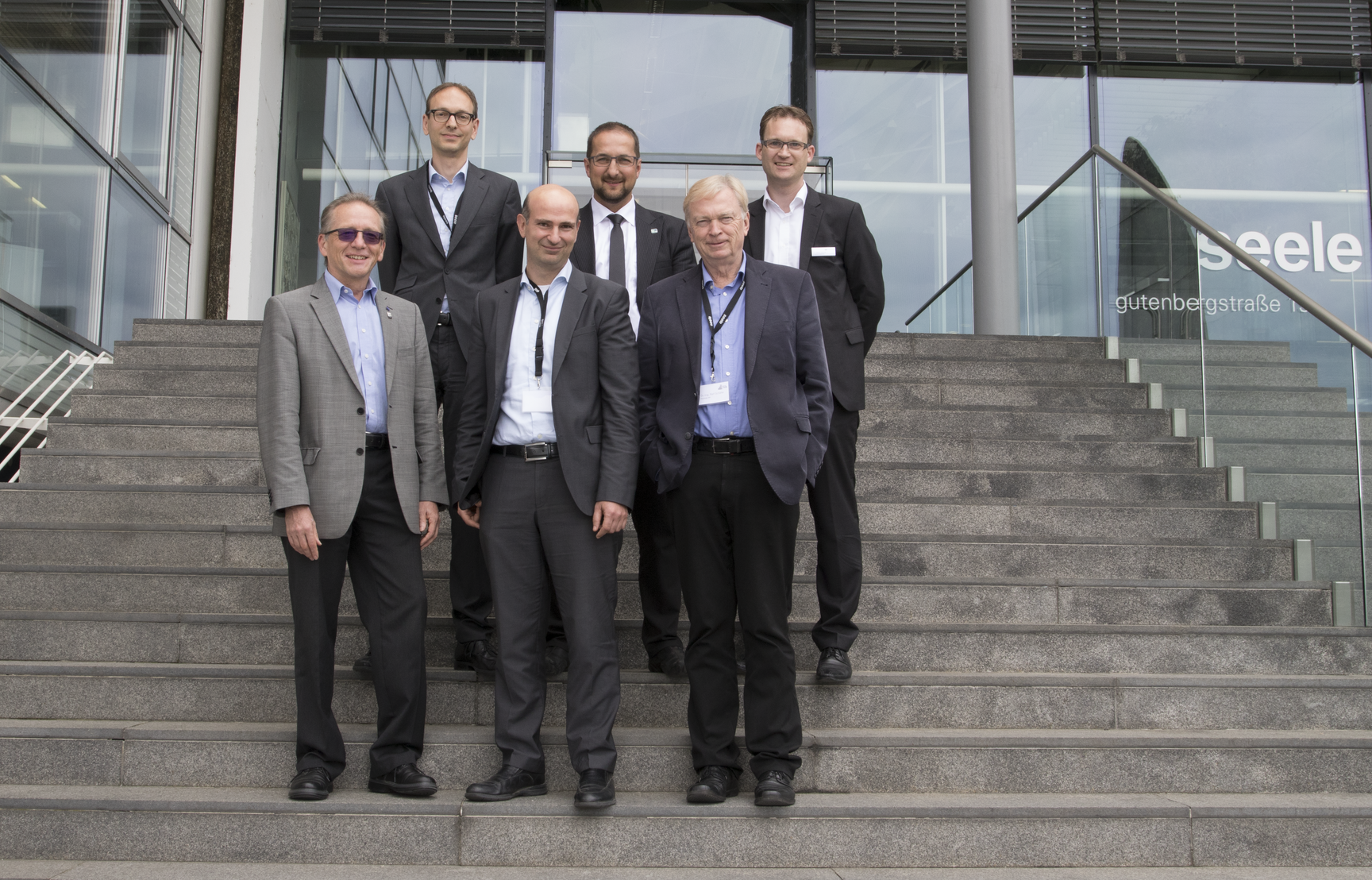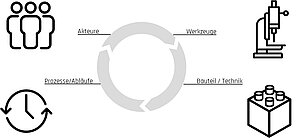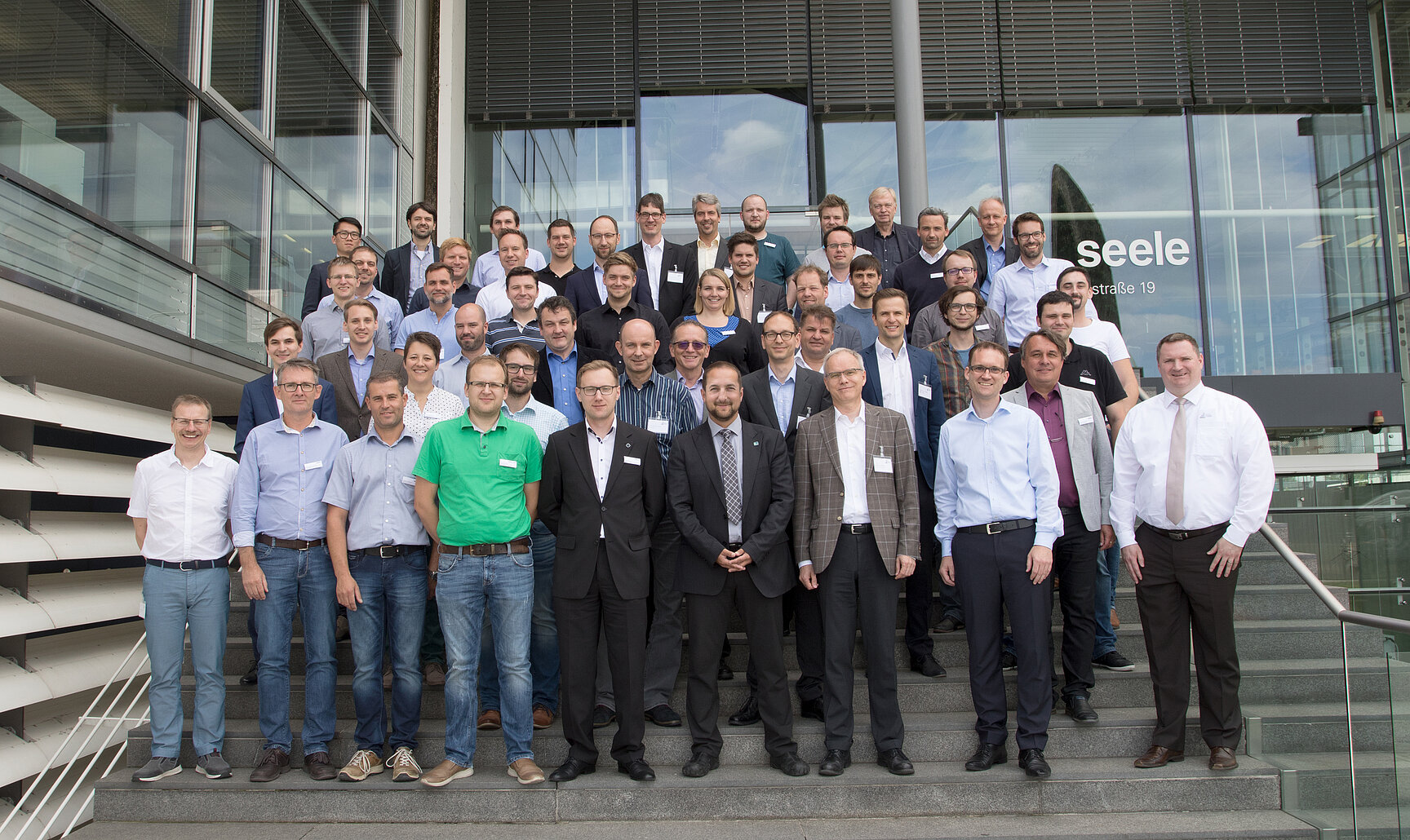June 19, 2018
Renowned project partners from industry and research will continue to develop digital tools and technologies until 2021 in order to connect and automate services, processes and procedures along the value chain of the construction industry. DigitalTWIN - Digital Tools and Workflow Integration for Building Lifecycles - focuses on understanding systemic dependencies and interactions, which is why research partners come from very different industries and fields of activity. DigitalTWIN is funded by the German Federal Ministry of Economics and Energy (BMWi) as part of the Smart Service World II funding programme. Securing Germany as an efficient production and innovation location as well as expanding digital services in medium-sized businesses are central funding goals of the Federal Government.
The applications market of the building industry faces several challenges: changing responsibilities and accountabilities over life cycles of buildings, internationally differing standards and regulations as well as constantly changing partners in planning, production and operation.
At DigitalTWIN, an open platform architecture, advanced broadband communication technology and computer vision technologies are to simplify planning, production and coordination with the construction site and provide the user with a trustworthy and flexibly expandable communication and administration infrastructure.
Interdisciplinarity across industries
The research project benefits planners, manufacturing companies and service providers in the construction industry, but also communications and IT companies.
The research partners Se Commerce GmbH (a company of the Seele business group), the Heinrich Hertz Institute of the Fraunhofer-Gesellschaft, Telegärtner Karl Gärtner GmbH, Carl Zeiss 3D Automation GmbH, planen-bauen 4.0 and Werner Sobek Stuttgart AG have designed the DigitalTWIN research project. The main focus of the project is on the automated and networked combination of processes as well as on the use of future-oriented technologies, such as VR/AR technology, Smart Data Services, BIM services and Machine Learning, in order to develop a flexibly applicable digital platform.
The research fields refer to the following areas
- Planning: Automation of routines by algorithms
- Interaction: Networked content and operation of VR/AR glasses
- Communication: Infrastructure for planning, production and construction site
- Data security: Structuring of data and fast exchange
- Systems integration: New standards for networking hardware and software solutions
- Demo building: Application and evaluation
The completed research result
DigitalTWIN addresses the convergence of process organization, communication, IT technologies and automation, which is indispensable for future BIM and Industry 4.0 applications. The research project aims at a modular approach so that the individual, company-internal IT system landscape can be integrated as flexibly and securely as possible. Key technologies from the areas of 5G, Multi-Access-Edge-Computing (MEC), Cloud-Computing, Virtualization, CAD/CAM, BIM and Data Analytics are used. The results will be tested, evaluated and integrated into (inter)national standardisation using a demonstration building.
The Consortium
DigitalTWIN enables the partners, who operate on a global scale, to discuss the general conditions in the different markets and to reflect on how future construction work in Germany and the structure of our economy can be used and expanded to an advantage in the globally competitive IT market. Accordingly, the consortium consists of leading service providers and industrial companies from the fields of construction, IT, communications and automation technology as well as leading research institutions. The wide range of competencies of the consortium partners secures the expertise of the interdisciplinary project. By bundling the expertise of well-known participants, DigitalTWIN creates additional benefit for the feasibility of ICT solutions and enables a direct and critical examination of whether the concepts and approaches can be implemented in a practical manner. The project is accompanied by expertises in data security, IT security and the methodical optimization of business processes to ensure its use in very different company structures and user markets.


